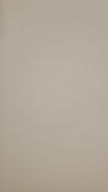Quartz

Definition: Quartz (aka engineered stone or engineered quartz) is made from natural quartz particles bonded together with resin, pigments, and other ingredients. The exact blend of ingredients in engineered quartz varies by brand and color, and manufacturers have different percentages of minerals in their slabs.
Many quartz brands are made with the patented Breton process, which involves pouring the ingredients in slab-shaped molds, then subjecting the mixture to a vacuum, vibration, and pressure.
This process compresses slabs at around 30 pounds per square inch, and applies heat up to 360° F for around 40 minutes. Then the slabs are cured in a kiln, cooled, and polished.
Because quartz particles are encased in resin, engineered quartz ends up having low porosity (water absorption up to 0.02% in weight, according to Breton). On the other hand, the presence of resin means that engineered quartz is slightly softer than natural granite or natural quartzite.
Quartz offers many advantages: Heat resistant, scratch resistant, stain resistant, easy to clean, gorgeous patterns. Because quartz is 98% non porous, it does not require to be maintained with a sealer. Another great advantage of quartz is the amazing variety of marble mimicking patterns. Everyone loves the subtleness of marble patterns but hate its upkeep and maintenance, however with quartz, you can get the look of a marble stone with the performance of a quartz surface.
Although the term quartz refers to the natural mineral, engineered quartz is a manmade stone.
Manufactured quartz is made in factories in the United States, Europe, and Asia, among other locations.
Please see the top colors our customers select below. Do not hesitate to reach out as we offer many more options. Color and pattern vary as no two slabs are exactly the same. Please keep that in mind when viewing the examples on our website.











